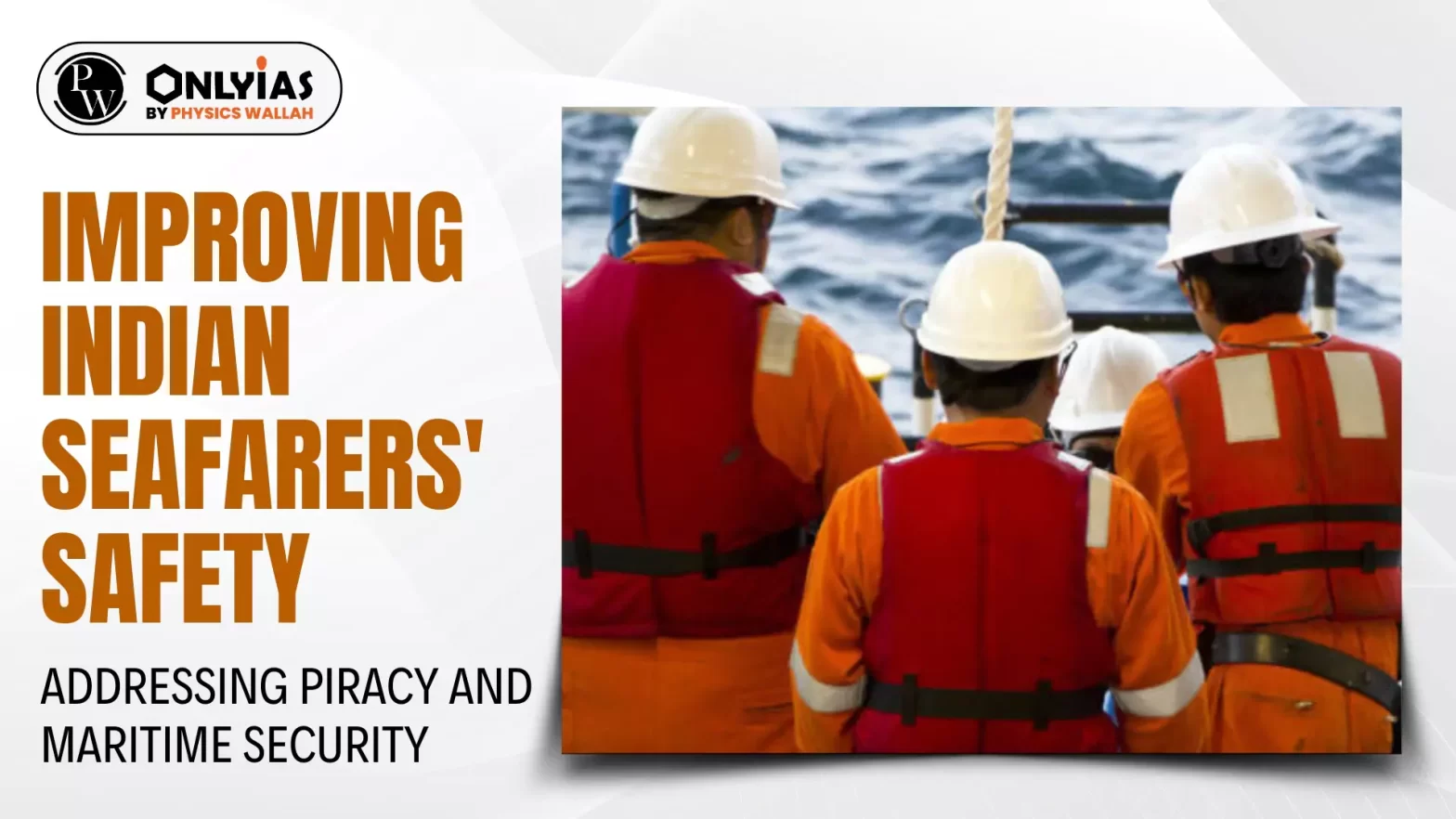Context
India submitted three papers to the 111th Session of the International Maritime Organization’s (IMO) Legal Committee (LEG) to address seafarers’ security concerns and broader maritime security challenges.
Rising Safety Concerns for Indian Seafarers
- Escalating Safety Concerns for Indian Seafarers: Indian seafarers face escalating safety concerns due to recent attacks on commercial ships in sensitive regions like the Red Sea and the Strait of Hormuz.
- India’s Initiatives for Seafarer Security: India has submitted three papers to the International Maritime Organization (IMO) to address seafarers’ security, contractual terms, and broader maritime security challenges.
- Enhancing Maritime Security: These submissions underscore the need for a comprehensive approach to maritime security and improved conditions for seafarers.
Enroll now for UPSC Online Course
Challenges and Concerns for Indian Seafarers
- Resurgence of Sea Piracy: Recent pirate attacks off the coast of Somalia indicate a resurgence of piracy, with vessels like the MV Ruen and MV Lila Norfolk being targeted.
- Unlawful Recruitment Practices: Unlawful recruitment practices negatively impact seafarers’ well-being and international trade.
- India reports over 200 cases of seafarer exploitation since 2020, urging international coordination to address these issues under the Maritime Labour Convention, 2006.
- Vulnerabilities of Indian Seafarers: India, with 9.35% of global seafarers and ranking third globally, confronts such incidents.
- Indian seafarers face significant vulnerabilities due to incidents such as vessel seizures and detentions, as exemplified by the cases of MSC Aries and MT Heroic Idun.
- Accountability Challenges: Challenges persist in holding ship owners accountable for violations and protecting seafarers’ rights under foreign registrations.
- Seafarers at Risk: Three years ago, the Maritime Union of India highlighted a 40% increase in kidnappings in the Gulf of Guinea, with 134 cases of assault, injury, and threats reported.
- Incidents such as the kidnapping of 20 Indian nationals from the MT Duke (off the western coast of Africa) and the ship owners paying hefty ransoms highlight the dangers faced by seafarers.
Initiatives in Ensuring Seafarers’ Rights
- India’s Anti-Piracy Efforts: India calls for vigilance, proactive measures, and international cooperation to combat piracy, aligning with the United Nations Convention on the Law of the Sea.
- Protecting Indian Seafarers: The Indian government and the National Human Rights Commission launched the ‘human rights at sea’ initiative to address abuses against Indian seafarers, including cases of imprisonment and illegal detentions.
- Human Rights at Sea’ has highlighted abuses against Indian seafarers, including 200 held in foreign jails and 65 stranded in Indonesia for 151 days.
- Cooperative Action: Proactive cooperation among stakeholders is crucial to safeguard human rights in the maritime industry and ensure seafarers’ well-being.
Way Forward
- Addressing the Growing Concern of Maritime Piracy: Maritime piracy poses a growing concern for Indian seafarers, with a more than 10% increase in serious piracy incidents over the last 10 months.
- Call for International Cooperation: Enhanced international cooperation is needed to safeguard seafarers and ensure uninterrupted navigation, especially amid rising incidents involving Indian seafarers and geopolitical tensions.
- Improved Protection Measures: Reports highlight exploitation of Indian seafarers by Iranian shipping companies, underscoring the need for improved protection measures and government support.
- These seafarers often face overwork, are provided insufficient food, and are forced into transporting illegal cargo, despite paying hefty fees to secure overseas jobs.
- Indian Seafarers’ Resilience Amid COVID-19: During the COVID-19 pandemic, Indian seafarers demonstrated their resilience and professionalism, enhancing India’s standing in the global maritime market.
- Opportunities in the Indian Maritime Sector: The Ukraine-Russia conflict has also created opportunities for new players in the Indian maritime sector.
Conclusion
India aims to increase its share of global seafarers to 20% in the next 10 to 20 years, emphasizing the importance of improving rights and protection for seafarers in the maritime industry.
Also Read: India’s Nuanced Approach In The South China Sea
![]() 25 Apr 2024
25 Apr 2024
